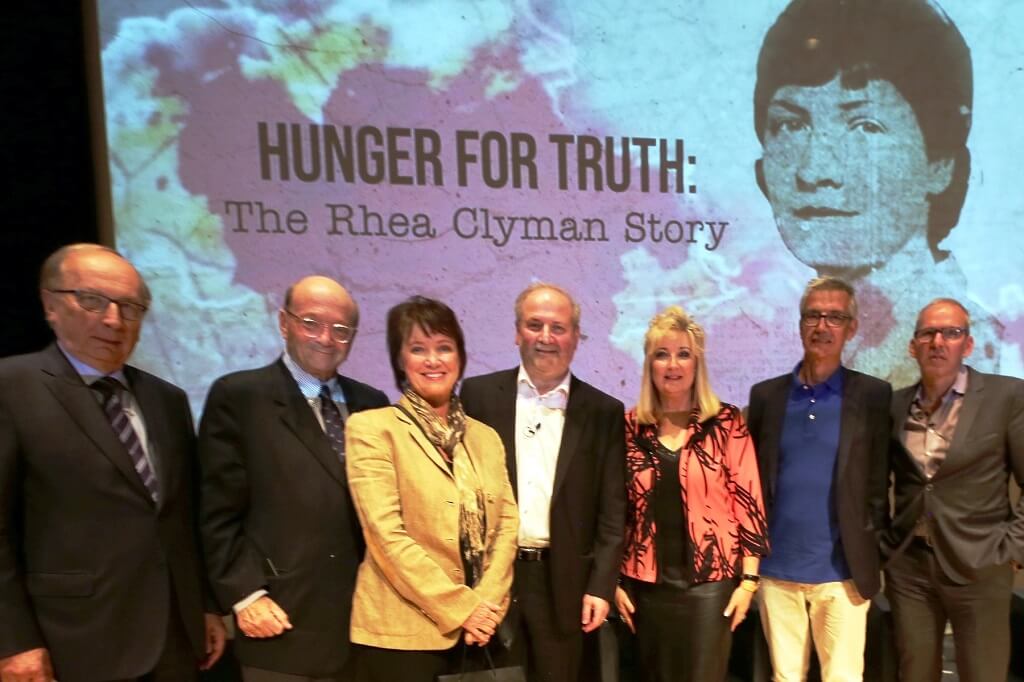A reignited torch in the storm of modern fake news and deceptions of the past.
Daniel Bartchouk for NP-UN, Kingston.
We live in a time where the most powerful tools in the field of journalism lie in everyone’s pockets. A voice recorder, camera, and notepad all in one— we could certainly ask for no better. With endless opportunity however, comes big responsibility.
With the ability to speak comes the obligation to truth, a journalist’s unspoken vow to share what is real and what is true, to not manipulate or alter the facts for reasons personal or otherwise. American writer Walter Lippmann puts it, “There can be no higher law in journalism than to tell the truth and to shame the devil.” And shame the devil we will.
Rhea Clyman was among the first journalists to witness and report on the horrific events of the Holodomor. Her articles were discovered by Jars Balan, Director of the Canadian Institute of Ukrainian Studies (at University of Alberta), as he researched the archives of the former Toronto Telegram.
Clyman grew up in Toronto in a poor immigrant Polish Jewish family. As a child, she lost part of a leg in a streetcar accident. At age eleven, her father died and she went to work in a factory, pursuing education through self-study. In 1928, intrigued by the promise of a Soviet worker’ paradise, Clyman arrived in Moscow and was hired as an assistant to Walter Duranty of The New York Times. She learned the language, and nine months later set out as a freelance foreign correspondent.
In 1932, all of Moscow was whispering about the famine taking hold in Ukraine, but foreign correspondents would not write about it, fearful of angering the Soviet authorities. Clyman went in search of the truth. Her rare, and chilling reports on what she witnessed are notable for their compassion and disdain for hypocrisy.
On her trip through Ukraine she encountered fields full of wheat, yet empty of people. Where had they all gone? As she continued, she stopped in another village to ask for some eggs and milk. A woman looked at her incredulously; the people were starving. There was barely any food at all, people were down on all fours eating grass.
The chilling sights left a mark on Clyman, who developed a further insight into the famine, seeing it for what it was— a sinister work of a cruel authoritarian government.
She was expelled from the USSR for her reporting. “She was incredibly resourceful, and she was fearless,” Balan said. “She didn’t pull any punches.”
Rhea’s articles were published back in Canada. Her words echoed like a beacon of light amid the churning sea of propaganda and deception, including reports from her own boss Walter Duranty, who failed to bring to light the reality of the tragic events in Ukraine and the regime of the Soviet Union.
Over her extraordinary career, Clyman also reported on Hitler’s rise in Nazi Germany. She struggled financially in her later years, and her death in New York City went unnoticed in the press.
Clyman’s story is one of tragedy, justice, perseverance and the choice of doing the right thing under dangerous circumstances. Her actions resonate with the universal journalistic mission to serve the truth. The world of abundant media flow is an easy ground for misinterpretation, inaccurate reportage or simply incorrect fact (sometimes intentional). The consequences of lies in the news is a dangerous rabbit hole we should avoid at all costs. We need Rhea Clyman’s tenacity and courage now more than ever.
The premiere of Andrew Tkach’s documentary Hunger for Truth is the beginning of giving Rhea Clyman’s story the light of day it deserves, ensuring that her remarkable legacy is honoured and shared. The issues that the film presents are eerily relevant to the present day, and the importance of truth telling is evident in the consequences of faux information in the modern world. The horrors it depicts are harsh truths in the face of propaganda and misrepresentation, corruption and mass deceit. Clyman, the story’s heroine, fights for justice in an all-too-real setting of the time, the importance of which the film harnesses to bring to the modern public. Her fight for looking for the truth, despite all odds, is an inspiration to journalists and people with the power to report things as they are, not lies decided by someone else, and uncover the falsehoods of those with the power to spread them.
Canadian film premiere of “Hunger for Truth: The Rhea Clyman Story” took place on June 5, 2018 at the Royal Ontario Museum in Toronto. The film was presented under the auspices of the Canada-Ukraine Foundation, Holodomor National Awareness Tour.
Daniel Bartchouk is this year’s winner of Ukrainian Credit Union Limited’s New Pathway Journalism Fellowship
Share on Social Media


































